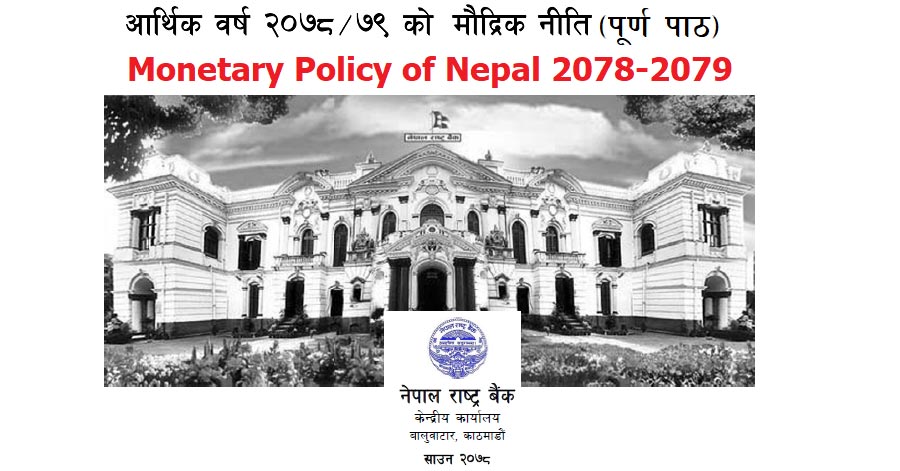
Nepal Rastra Bank (NRB) has made public the monetary policy for the current fiscal year 2078/79 with the aim of promoting the industries and businesses affected by Corona. Announcing the monetary policy on Friday, Central Bank Governor Maha Prasad Adhikari said that the revival loan brought earlier has been continued to reduce the impact of Corona.
The policy addresses the hotels, tourism, and airspace most affected by Corona with special interest. Monetary policy has also given special attention to areas that have problems in cash flow due to corona.
Similarly, a loan of up to Rs. 200000 arrangement of the fixed exchange rate, the scope of financial resource mobilization has been widened while the interest rate corridor and interest rate stability have been managed.
Similarly, a new provision has been made in the policy to get additional interest in case of remittances kept in banks and financial institutions. According to the governor, remittances have been kept in the banking system and an additional one percent increase has been made in the current interest rate.
The monetary policy for the Fiscal Year 2078/79 has been formulated in an environment where human life and economic activities are being affected by the Kovid-19 epidemic. The policy initiatives adopted to mitigate the effects of the epidemic on the economy have contributed significantly to the conduct of economic activities as well as maintained macroeconomic and financial stability.
The Covid-19 epidemic has created obstacles to economic development and prosperity, including social justice. Economic activity has been affected by the recurring trend of transition. Despite significant improvement in export trade to the external sector, the trade deficit has been widening due to rising imports, which has put pressure on the balance of payments. Foreign exchange reserves are in a favorable position. Inflation is within the target range.
The credit flow has increased significantly due to monetary and regulatory facilitation, including refinancing, concessional loans, aimed at helping the economic recovery by minimizing the impact of COVID-19 on the economy. Due to the single-digit interest rate on loans, business operating costs have declined even during the epidemic.
Due to the priority of Nepal Rastra Bank (NRB) is encouraging electronic transactions and the need to conduct cashless transactions to reduce the risk of COVID-19 infection, the use of electronic means in the payment of transactions has expanded rapidly in recent times. Electronic transactions have also expanded in retail shops, wholesale trade, department stores, and capital markets. This has helped in the development and modernization of the payment system as well as increasing financial access.
According to international organizations, the flexible and exceptional policy efforts of most countries and the availability of vaccines against infection have led to the revival of the global economy, which contracted last year due to COVID-19.
However, the pace of economic recovery is still slow in countries that rely on tourism incomes and do not have easy access to vaccines.
As the epidemic continues, it will take more time to revive the worst-affected areas, including tourism. There is a need to provide regulatory facilitation and facilitation on the one hand for rapid economic recovery while minimizing the impact of the epidemic on the economy, on the other hand, there is a need to be aware of the adverse effects on financial stability as well as external sector stability.
Considering the national and international economic situation and scenario, the monetary policy of the Fiscal Year 2078/79 has been formulated in accordance with the provisions of the Nepal Rastra Bank Act, 2058 BS while the second wave of Covid-19 transition is still going on.
The common minimum programs, policies, and priorities of the government, information on the current economic situation of the country, 2078, and the third strategic plan of this bank have also been taken as the basis for formulating monetary policy. While formulating the monetary policy, sufficient feedback has been given to the opinions and suggestions received from the stakeholders.





